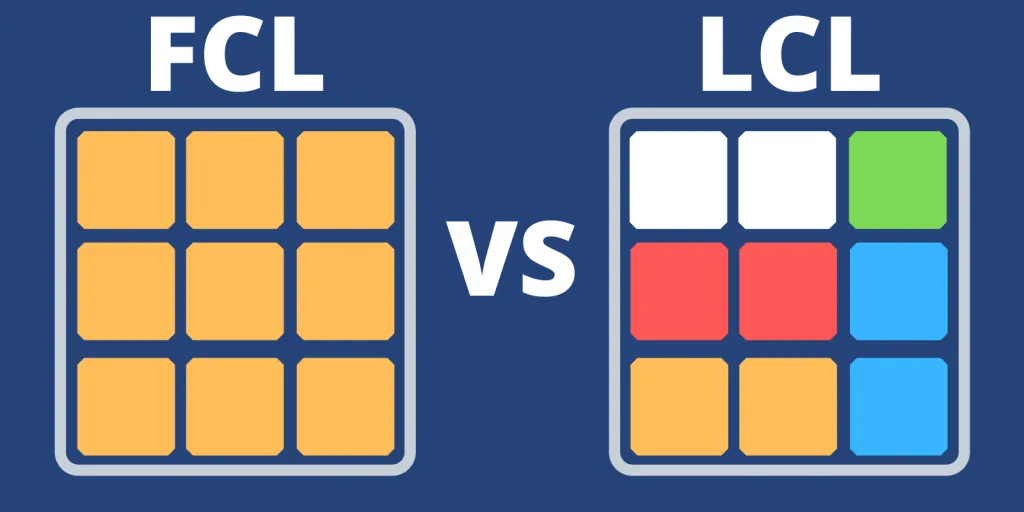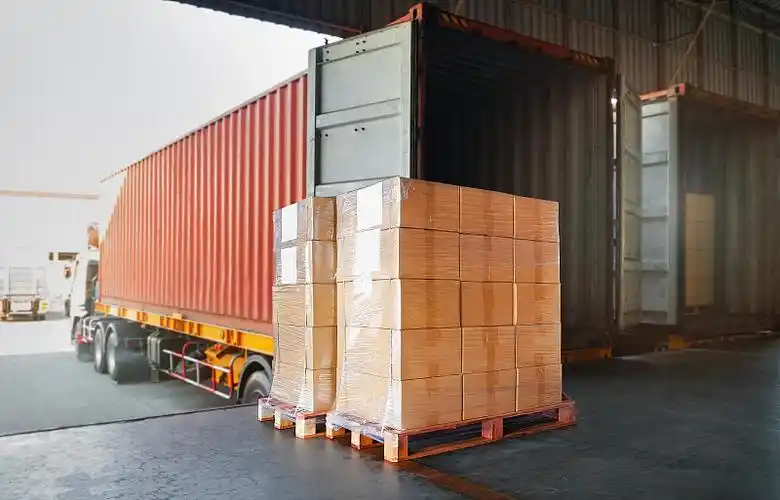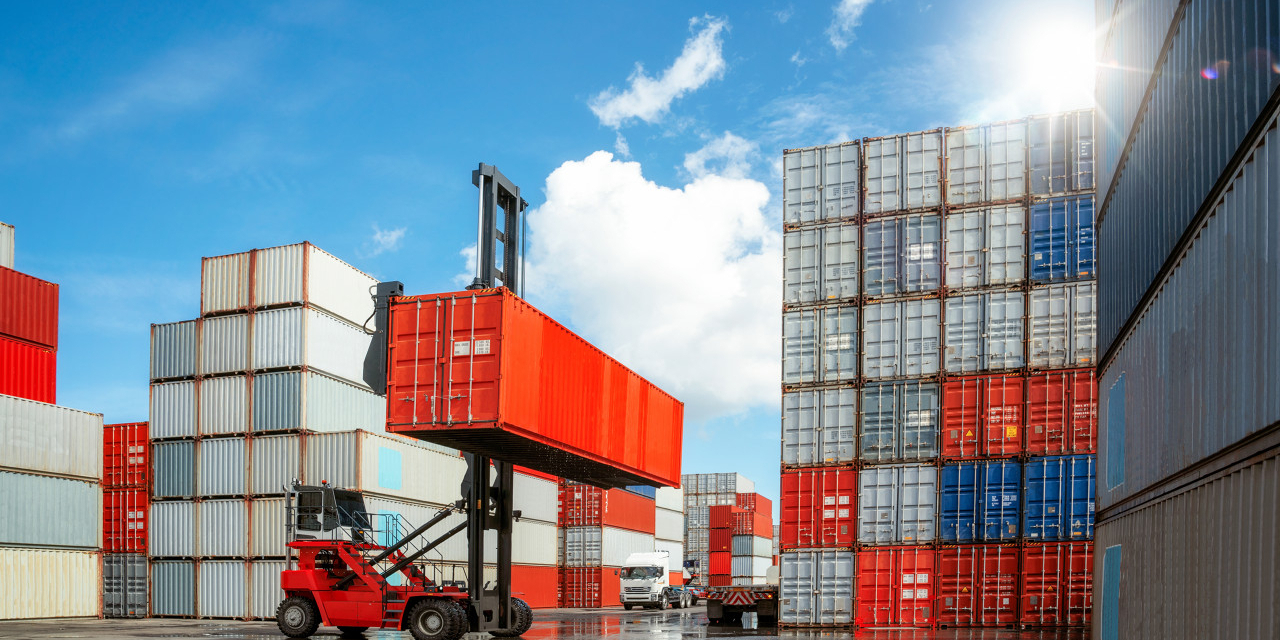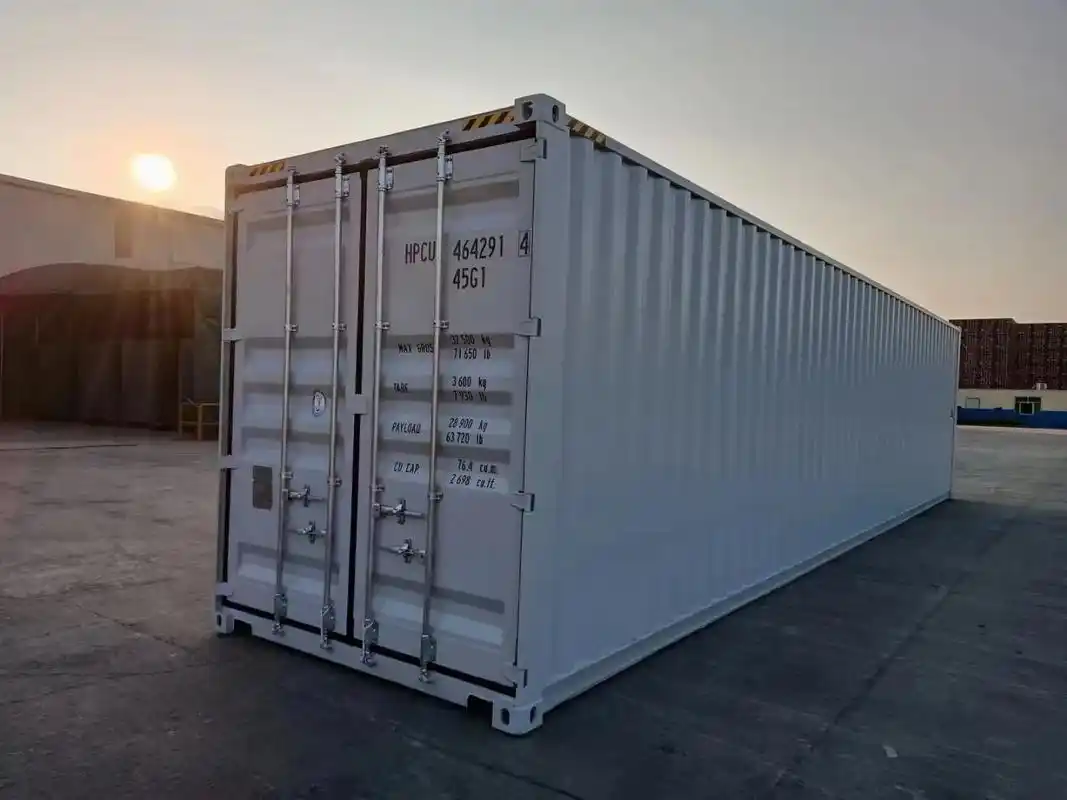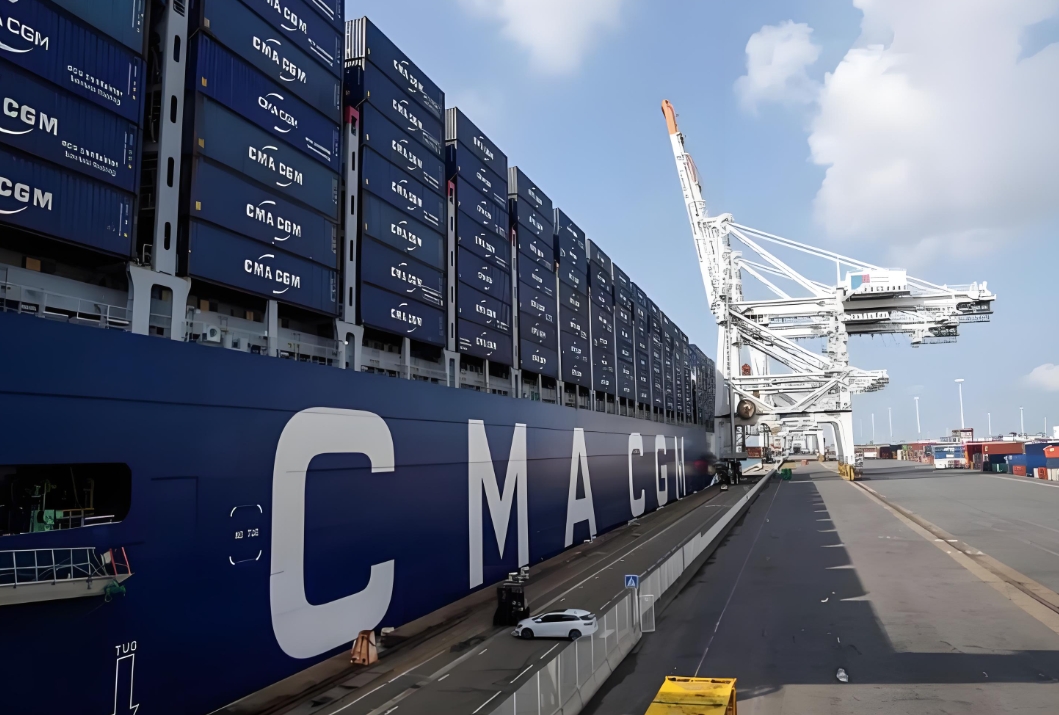Comprehensive Analysis: FCL vs LCL Shipping
Considering how to optimize your international shipping strategy?
Selecting Between Less than Container Load (LCL) and Full Container Load (FCL) Shipping: A Game-Changing Decision. This Guide Explains Definitions, Core Distinctions, and Strategic Points to Ponder. Whether You're Concerned with Cost-Effectiveness, Transit Durations, or Shipment Size, Grasping the Subtleties of LCL vs. FCL is Vital. From the Adaptability of LCL for Smaller Shipments to the Streamlined Efficiency of FCL for Larger Quantities, Choosing Wisely Can Elevate Your Logistics and Boost Your Business's Financial Performance.
COMPARISON OF LCL AND FCL SHIPPING: A COMPREHENSIVE ANALYSIS
|
Feature |
LCL (Less than Container Load) | FCL (Full Container Load) |
|---|---|---|
| Definition | Cargo shares container space with shipments from other shippers. | Exclusive use of a container by a single shipper’s cargo. |
| Cost Efficiency | Cost-effective for shipments under 15 cubic meters. Price varies, but smaller shipments generally incur higher per unit costs due to handling and fees. | More economical for shipments over 15 cubic meters. Flat rate for the container ($1,500-$3,000 for a 20-foot container), making larger shipments cheaper per unit. |
| Transit Time | Up to 33% longer due to consolidation/deconsolidation. Additional 5-7 days on average compared to FCL. | Generally faster by 20-30%, as no consolidation is needed. Direct shipment reduces delays. |
| Volume | Suitable for volumes less than half of a 20-foot container. | Best for volumes that fill or nearly fill a 20-foot container. |
| Flexibility | High, with options for partial shipments and more frequent departures. | Lower, requires planning and coordination to maximize container use. |
| Risk of Damage | Higher risk due to multiple handling and movements. | Lower risk, as cargo is secured and moves less inside the container. |
| Cost Complexity | More complex with additional fees like LCL handling fee ($50-$150), documentation, and customs brokerage. | Simpler, with a single rate for the entire container. Easier to budget and plan for costs. |
| Typical Use Case | Ideal for seasonal inventory, SMEs, and businesses with varying demand. | Preferred by regular exporters/importers, large volume shippers, and for high-value or fragile goods. |
| Environmental Impact | Less efficient per unit of cargo compared to FCL, but offers more frequent shipping options that can reduce storage. | More efficient per unit of cargo, reducing environmental impact per shipped unit. |
| Preferred Routes | Versatile across most routes but especially beneficial on less popular routes where full container loads are harder to justify. | Highly effective on major shipping routes with consistent demand for container space. |
LCL VS FCL: DEFINITIONS AND KEY DIFFERENCES
Have you ever found yourself pondering the best way to ship your goods internationally? The Critical Choice Between LCL and FCL Shipping. Exploring Definitions, Key Distinctions, and the Impact on Cost, Transit Time, and Shipment Volume.
WHAT ARE LCL AND FCL?
- LCL (Less than Container Load): This option is akin to a shared ride for your cargo. Your goods will share container space with items from other shippers. It’s the go-to for shipments that can’t fill an entire container.
- FCL (Full Container Load): FCL means your goods exclusively occupy a container. Whether your shipment fills the container or not, you pay for the entire container. It’s ideal for larger shipments that need more space or security.
KEY DIFFERENCES THAT MATTER
COST EFFICIENCY
- LCL is often more cost-effective for smaller shipments. You only pay for the space your goods occupy. However, the cost per unit of weight or volume can be higher compared to FCL.
- FCL, while requiring a higher upfront cost for the whole container, can significantly reduce the cost per unit shipped, making it more economical for larger volumes.
TRANSIT TIME CONSIDERATIONS
- LCL shipments tend to have longer transit times. This is because the process involves more handling and consolidation/deconsolidation activities, which add to the overall duration.
- FCL shipments are generally faster, as the container goes directly from the sender to the receiver without the need for consolidation, leading to a more streamlined process.
VOLUME AND SPACE UTILIZATION
- LCL allows for flexibility in shipping smaller volumes without waiting to accumulate enough cargo for a full container. It’s particularly advantageous for businesses with less predictable supply chains.
- FCL is more straightforward when you have enough goods to fill a container or when you prefer that your cargo travels alone for safety or privacy reasons.
Businesses Must Weigh Cost, Transit Time, and Volume to Select the Optimal Shipping Method, Knowing That This Choice Profoundly Affects Efficiency and Financial Outcomes.
WHEN TO CHOOSE LCL
Are you debating whether LCL shipping aligns with your business needs? Understanding when to opt for Less than Container Load (LCL) can be the game-changer in managing your logistics efficiently. Let’s explore the ideal scenarios, benefits, and considerations of choosing LCL for your shipments.
IDEAL SCENARIOS FOR LCL
- Smaller Shipments: If your cargo volume does not justify the use of an entire container, LCL offers a flexible solution to ship smaller quantities without the cost of an FCL shipment.
- Cost Constraints: For businesses managing tight budgets, LCL allows for shipping goods internationally without the need for a full container load, optimizing costs.
- Inventory Management: Companies that prefer to maintain lower inventory levels or have limited storage space may find LCL more advantageous, allowing for more frequent shipments of smaller quantities.
BENEFITS OF CHOOSING LCL
- Cost-Effectiveness: LCL is particularly beneficial for small to medium-sized enterprises (SMEs) as it offers the ability to ship goods without waiting to fill a whole container, thereby saving on shipping costs.
- Flexibility: The flexibility of LCL allows businesses to respond more swiftly to market demands, reducing lead times and enhancing customer satisfaction.
- Reduced Capital Tied Up in Inventory: By shipping smaller quantities more frequently, companies can reduce the amount of capital tied up in inventory, improving cash flow.
CONSIDERATIONS BEFORE CHOOSING LCL
- Longer Transit Times: One of the trade-offs with LCL is the potentially longer transit times due to the additional handling involved in consolidating and deconsolidating different shipments.
- Increased Handling: The more frequent handling of goods in LCL can lead to a higher risk of damage or loss. Proper packaging and insurance become even more critical.
- Complexity in Costs: While LCL can be more cost-effective for smaller shipments, the pricing structure can be more complex due to various fees (e.g., consolidation fees). It’s essential to carefully evaluate the total cost.
Consider a scenario where a small enterprise specializing in handcrafted goods is expanding into global markets. Opting for LCL shipping would be advantageous, as it enables the transport of smaller product quantities, aligning with demand fluctuations without incurring substantial inventory expenses. This method not only curbs shipping expenditures but also fosters a streamlined operational strategy.
Embracing LCL as a logistics strategy can be a savvy move for businesses aiming to trim logistics expenditures while preserving the agility to adapt to market fluctuations. Nevertheless, it's imperative to conduct a thorough benefits-versus-trade-offs analysis to confirm that LCL shipping is the most suitable option for your specific cargo transportation requirements.
WHEN TO CHOOSE FCL
Curious About Full Container Load (FCL) Shipping for Your Logistics? Discover the Optimal Situations, Advantages, and Essential Factors to Consider for Making FCL the Strategic Choice to Enhance Your Shipping Efficiency and Reduce Costs.
IDEAL SCENARIOS FOR FCL
- Large Shipments: When your cargo is enough to fill a container, FCL becomes the most straightforward and cost-effective choice, eliminating the need for consolidation.
- High Demand Consistency: For businesses with consistent demand and volume, FCL provides a reliable way to maximize shipping efficiency, ensuring products are always available.
- Sensitive or High-Value Cargo: FCL offers greater security and less handling of your goods, making it ideal for shipping fragile, expensive, or confidential items.
BENEFITS OF CHOOSING FCL
- Reduced Shipping Times: FCL shipments often arrive faster than LCL, as they bypass the consolidation process, going directly from sender to receiver.
- Lower Risk of Damage: With less handling involved, FCL shipments have a lower risk of damage or loss, providing peace of mind for shippers of delicate goods.
- Cost Predictability: FCL offers more straightforward pricing, with costs related primarily to container rental and shipping, making budgeting easier and more predictable.
CONSIDERATIONS BEFORE CHOOSING FCL
- Higher Initial Costs: While FCL can be more cost-efficient for large volumes, the initial outlay is higher since you are paying for the entire container.
- Storage and Handling at Destination: Receiving FCL shipments requires adequate space and logistics for unloading and storing the goods upon arrival, which can be a challenge for smaller businesses.
- Volume Fluctuations: If your business experiences significant fluctuations in product volume, committing to FCL might lead to underutilized space or increased costs during lower volume periods.
For example, a large number of mechanical parts need to be shipped from China to Middle East, and manufacturers will find that whole boxes are not only more economical, but also safer and faster, ensuring their supply chain remains uninterrupted and efficient. This method minimizes the risk of damage and loss to the greatest extent possible, which is a key consideration for high-value or bulky items.
Opting for Full Container Load (FCL) Shipping strategic Decision for Companies Aiming to Streamline Operations and Enhance Cost-Effectiveness in Bulk Logistics. Through a Methodical Assessment of Benefits in Relation to Key Factors, Businesses Can Ascertain That FCL Aligns with Their Logistic Demands and Corporate Goals.
COST AND TRANSIT TIME COMPARISON
Struggling to Decide Between LCL and FCL Shipping Due to Cost and Speed Considerations? Gaining Insight Into the Financial and Time-related Consequences of Both Approaches Can Guide You to the Optimal Shipping Solution for Your Goods. Let's Analyze the Typical Cost Differences and the Variances in Transit Durations Between LCL and FCL, Equipping You with the Knowledge to Choose Wisely.
GENERAL COST COMPARISON BETWEEN LCL AND FCL
- LCL Costs: With LCL, you pay for the space your cargo occupies. While this might seem cost-effective for smaller shipments, the price per unit of volume can be higher due to additional fees like consolidation and deconsolidation charges. Moreover, handling and customs fees can accumulate, potentially increasing the total cost.
- FCL Costs: FCL, on the other hand, involves paying for the entire container. For large shipments, this means a lower cost per unit of cargo shipped. Although the upfront costs are higher, the overall expense can be more economical for bulk shipments.
HOW TRANSIT TIMES DIFFER
- LCL Transit Times: The nature of LCL shipping, involving consolidation and deconsolidation, inherently adds to the transit time. The process of gathering cargo from multiple shippers and the subsequent sorting at the destination can significantly extend delivery schedules.
- FCL Transit Times: FCL shipments generally boast shorter transit times. Since an FCL container is exclusively used for your cargo, it bypasses the lengthy consolidation process, moving directly from point A to point B. This direct route not only speeds up delivery but also reduces the risk of delays associated with handling multiple consignments.
For example, needs to transport 20 cubic meters of goods from China to Qatar. Considering the additional processing and longer transportation time, the cost per cubic meter for LCL transportation may be higher compared to FCL transportation. In contrast, the same enterprise can transport full container load (FCL) and enjoy lower unit costs and faster delivery speeds, which is particularly advantageous for time sensitive or large batch goods.
For Smaller or Less Time-Sensitive Shipments, LCL May Be the Practical Option, But for Bulk Quantities or Urgency, FCL Delivers Economic and Efficiency Benefits.
You may also be interested in: Freight Forwarding Services Between China And Qatar
FREQUENTLY ASKED QUESTIONS ABOUT FCL AND LCL
IS FCL CHEAPER THAN LCL?
Generally, FCL can be cheaper per unit of freight for large shipments, as you pay for the whole container regardless of its fullness.
HOW DO I DECIDE BETWEEN LCL AND FCL FOR SMALL SHIPMENTS?
Consider LCL for small shipments to save costs. FCL might be preferable if you prioritize faster transit times or if the cost difference is minimal.
CAN I SWITCH FROM LCL TO FCL IF MY CARGO VOLUME INCREASES?
Yes, you can switch to FCL if your cargo volume increases and it becomes more cost-effective or necessary for other reasons.
ARE THERE ITEMS THAT CAN ONLY BE SHIPPED VIA FCL?
Generally, no. But FCL might be necessary for oversized, heavy items, or for shipments requiring special conditions that don't suit consolidation.
HOW DOES CONSOLIDATION WORK WITH LCL?
In LCL, your goods are consolidated with other shipments in a container at the origin and deconsolidated upon arrival at the destination.
IS TRANSIT TIME FOR FCL ALWAYS SHORTER THAN LCL?
Typically, yes. FCL avoids the consolidation process, offering direct shipment and usually faster transit times.
DO BOTH LCL AND FCL OFFER TRACKING?
Yes, both LCL and FCL shipments can be tracked, providing visibility over your cargo during transit.
HOW SIGNIFICANT IS THE ENVIRONMENTAL IMPACT DIFFERENCE BETWEEN LCL AND FCL?
The impact varies, but FCL is often seen as more efficient and potentially less environmentally taxing on a per-unit basis due to reduced handling and processing.
CAN I SHIP PERSONAL EFFECTS USING LCL?
Yes, LCL is often used for shipping personal effects, especially when the volume doesn't justify the cost of an entire container.
IS INSURANCE COVERAGE DIFFERENT FOR LCL AND FCL SHIPMENTS?
Insurance options are available for both LCL and FCL, but the specifics of coverage may vary. It's important to discuss your needs with your freight forwarder.
HOW DOES WEATHER AFFECT LCL AND FCL SHIPMENTS?
Severe weather can delay both LCL and FCL shipments; however, the impact is generally more on the logistical processes pre and post-shipping rather than on the shipment's safety.
CAN I PACK MY LCL SHIPMENT MYSELF?
While self-packing is possible, it's recommended to follow the freight forwarder's guidelines or use professional packing services to ensure safety and compliance.
ARE THERE RESTRICTIONS ON WHAT I CAN SHIP VIA LCL OR FCL?
Yes, certain items may be restricted or require special handling. Always check with your freight forwarder for the most current restrictions and requirements.
CAN I SHIP HAZARDOUS MATERIALS IN LCL OR FCL?
Hazardous materials can be shipped by both methods, subject to strict regulations and additional documentation. Consult with your freight forwarder for guidance.
WHAT HAPPENS IF MY LCL SHIPMENT IS DELAYED?
Delays can occur due to various reasons. Freight forwarders typically offer solutions like alternative routes or expedited shipping options to mitigate delays.
HOW EARLY SHOULD I BOOK AN FCL OR LCL SHIPMENT?
Booking at least a few weeks in advance is recommended, especially during peak seasons, to ensure space availability and better rates.
CAN I ACCESS REDUCED RATES FOR LCL OR FCL THROUGH A FREIGHT FORWARDER?
Yes, freight forwarders often have negotiated rates with carriers and can offer more competitive prices for both LCL and FCL shipments.
 English
English 简体中文
简体中文 繁體中文
繁體中文 Afrikaans
Afrikaans አማርኛ
አማርኛ Español
Español العربية
العربية Français
Français Cebuano
Cebuano Български
Български Беларуская мова
Беларуская мова हिन्दी
हिन्दी বাংলা
বাংলা Português
Português Русский
Русский اردو
اردو فارسی
فارسی Türkçe
Türkçe كوردی
كوردی Deutsch
Deutsch 日本語
日本語 ไทย
ไทย Tiếng Việt
Tiếng Việt Italiano
Italiano עִבְרִית
עִבְרִית 한국어
한국어 Română
Română Nederlands
Nederlands Bahasa Indonesia
Bahasa Indonesia


